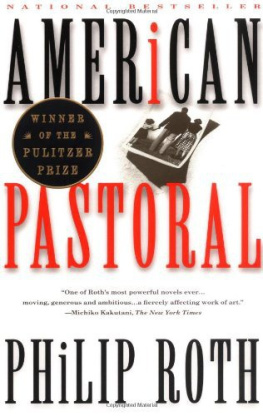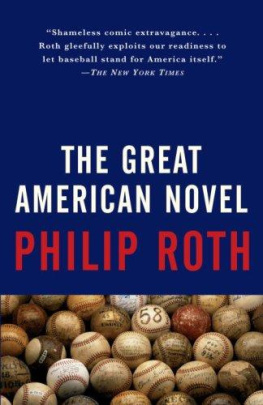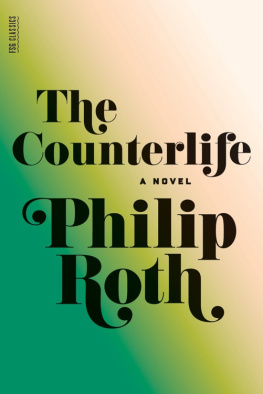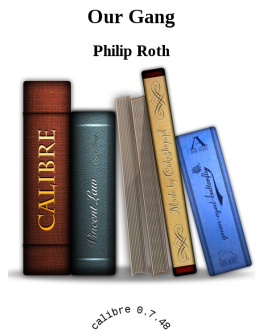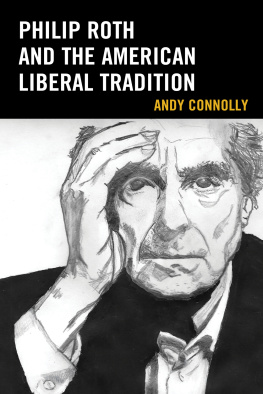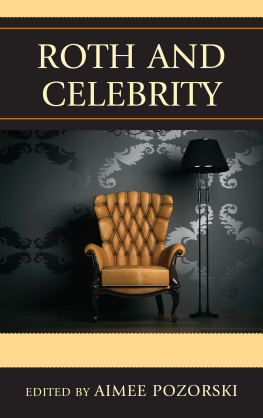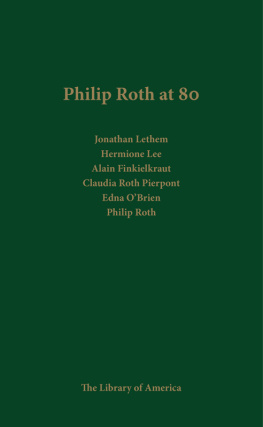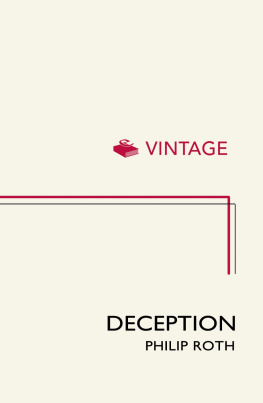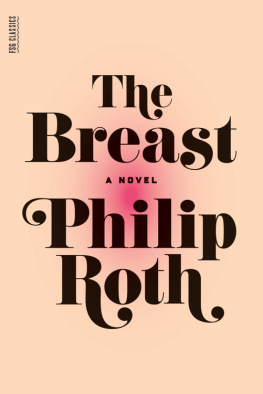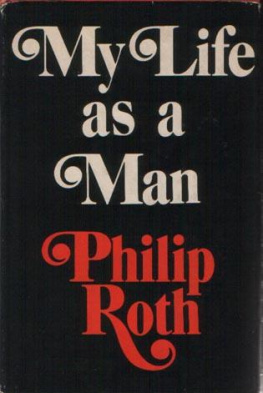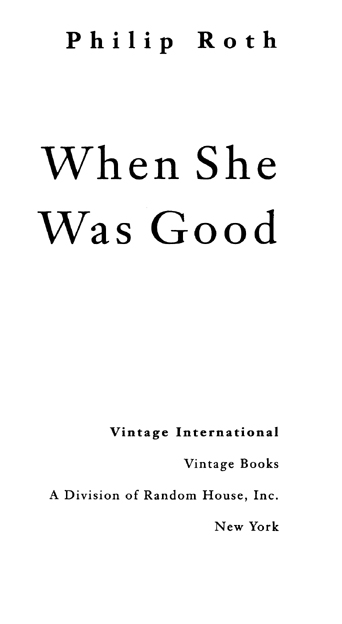Philip Roth
When She Was Good
In 1997 Philip Roth won the Pulitzer Prize for American Pastoral. In 1998 he received the National Medal of Arts at the White House and in 2002 the highest award of the American Academy of Arts and Letters, the Gold Medal in Fiction, previously awarded to John Dos Passos, William Faulkner, and Saul Bellow, among others. He has twice won the National Book Award and the National Books Critics Circle Award. He has won the PEN/Faulkner Award three times. In 2005 The Plot Against America received the Society of American Historians prize for the outstanding historical novel on an American theme for 20032004. In 2006 Roth received PENs most prestigious prize, the PEN/Nabokov Award for a body of work of enduring originality and consummate craftsmanship. Roth is the only living American writer to have his work published in a comprehensive, definitive edition by the Library of America. The last of the eight volumes is scheduled for publication in 2013.

Books by Philip Roth
ZUCKERMAN BOOKS
The Ghost Writer
Zuckerman Unbound
The Anatomy Lesson
The Prague Orgy
Exit Ghost
The Counterlife
American Pastoral
I Married a Communist
The Human Stain
ROTH BOOKS
The Facts Deception
Patrimony Operation Shylock
The Plot Against America
KEPESH BOOKS
The Breast
The Professor of Desire
The Dying Animal
MISCELLANY
Reading Myself and Others
Shop Talk
OTHER BOOKS
Goodbye, Columbus Letting Go
When She Was Good Portnoys Complaint Our Gang
The Great American Novel My Life as a Man
Sabbaths Theater Everyman

FIRST VINTAGE INTERNATIONAL EDITION,
FEBRUARY 1995
Copyright 1966, 1967 by Philip Roth
All rights reserved under International and Pan-American Copyright Conventions. Published in the United States by Vintage Books, a division of Random House, Inc., New York, and simultaneously in Canada by Random House of Canada Limited, Toronto. Originally published in hardcover by Random House, a division of Random House, Inc., New York, in 1966.
Sections of this book have appeared, in slightly different form, in the Atlantic, Harpers, and the Saturday Evening Post.
Lyrics from the following songs are used by permission:
Nature Boy by Eden Ahbez. Copyright 1948 by Crestview Music Corporation, New York. Sole Selling Agent: Ivan Mogull Music Corporation, New York, N.Y.
Anniversary Song, by Al Jolson. Copyright 1946 by Mood Music Co., Inc. N.Y.C. Sole Selling Agent: Shapiro, Bernstein & Co., Inc.
A Tree in the Meadow, by Billy Reid. Copyright 1947 by Campbell-Connelly Inc., New York. Sole Selling Agent: Shapiro, Bernstein & Co., Inc.
Its Magic, by Jules Stein. Copyright 1948 by M. Witmark & Sons.
Library of Congress Cataloging-in-Publication Data
Roth, Philip.
When She Was Good/Philip Roth. 1st Vintage International ed.
p. cm.
eISBN: 978-0-307-78860-3
1. Middle WestMoral conditionsFiction. 2. Fathers and daughtersMiddle WestFiction. 3. Married womenMiddle WestFiction. I. Title.
PS3568.0855W46 1995
813.54dc20 94-31360
v3.1
To my brother Sandy;
to my friends Alison Bishop, Bob Brustein,
George Elliott, Mary Emma Elliott,
Howard Stein, and Mel Tumin;
and to Ann Mudge:
For words spoken and deeds done
Contents
One
1
N ot to be rich, not to be famous, not to be mighty, not even to be happy, but to be civilizedthat was the dream of his life. What the qualities of such a life were he could not have articulated when he left his fathers house, or shack, in the northern woods of the state; his plan was to travel all the way down to Chicago to find out. He knew for sure what he didnt want, and that was to live like a savage. His own father was a fierce and ignorant mana trapper, then a lumberman, and at the end of his life, a watchman at the iron mines. His mother was a hard-working woman with a slavish nature who could never conceive of wanting anything other than what she had; or if she did, if she was really other than she seemed, she felt it was not prudent to speak of her desires in front of her husband.
One of Willards strongest boyhood recollections is of the time a full-blooded Chippewa squaw came to their cabin with a root for his sister to chew when Ginny was incandescent with scarlet fever. Willard was seven and Ginny was one and the squaw, as Willard tells it today, was over a hundred. The delirious little girl did not die of the disease, though Willard was later to understand his father to believe it would have been better if she had. In only a few years they were to discover that poor little Ginny could not learn to add two and two, or to recite in their order the days of the week. Whether this was a consequence of the fever or she had been born that way, nobody was ever to know.
Willard never forgot the brutality of that occurrence, which for him lay in the fact that nothing was to be done, for all that what was happening was happening to a one-year-old child. What was happeningthis was more his sense of it at the timewas even deeper than his eyes In the process of discovering his personal attractiveness, the seven-year-old had lately discovered that what someone had at first denied him would sometimes be conceded if only he looked into the others eyes long enough for the honesty and intensity of his desire to be appreciatedfor it to be understood that it wasnt just something he wanted but something he needed. His success, though meager at home, was considerable at the school in Iron City, where the young lady teacher had taken a great liking to the effervescent, good-humored and bright little boy. The night Ginny lay moaning in her crib Willard did everything he could to catch his fathers attention, but the man only continued spooning down his dinner. And when finally he spoke, it was to tell the child to stop shuffling and gaping and to eat his food. But Willard could not swallow a single mouthful. Again he concentrated, again he brought all his emotion up into his eyes, wished with all his heartand a pure selfless wish too, nothing for himself; never would he wish anything for himself againand fixed his plea on his mother. But all she did was to turn away and cry.
Later, when his father stepped out of the shack and his mother took the dishes to the tub, he moved across the darkened room to the corner where Ginny lay. He put his hand into the crib. The cheek he touched felt like a sack of hot water. Down by the babys burning toes he found the root the Indian woman had brought to them that morning. Carefully he wrapped Ginnys fingers around it, but they unbent the moment he let go. He picked up the root and pressed it to her lips. Here, he said, as though beckoning to an animal to eat from his hand. He was forcing it between her gums when the door opened. Youlet her be, get away, and so, helpless, he went off to his bed, and had, at seven, his first terrifying inkling that there were in the universe forces even more immune to his charm, even more remote from his desires, even more estranged from human need and feeling, than his own father.
Ginny lived with her parents until the end of her mothers life. Then Willards father, an old hulk of a thing by this time, moved into a room in Iron City, and Ginny was taken to Beckstown, off in the northwestern corner of the state, where the home for the feeble-minded used to be. It was nearly a month before the news of what his father had done reached Willard. Over his own wifes objections, he got into the car that very evening and drove most of the night. At noon the following day he returned home with Ginnynot to Chicago, but to the town of Liberty Center, which is a hundred and fifty miles down the river from Iron City, and as far south as Willard had gotten when at the age of eighteen he had decided to journey out into the civilized world.


